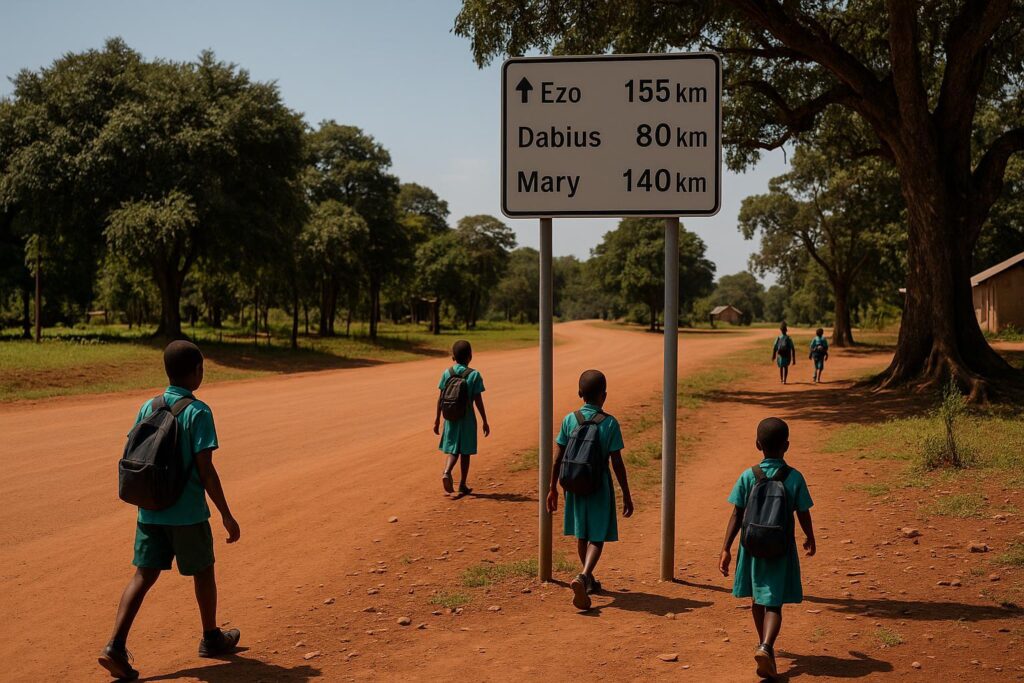Key Lifeline Under Fire
For residents of Western Equatoria, the 400-kilometre Juba-Yambio highway is more than asphalt; it is the spine that feeds markets, clinics and refugee camps across South Sudan. Yet recurring ambushes have turned its forested bends into a gauntlet no traveller forgets.
On Monday at about 10 a.m., gunmen showered a UN-marked truck with bullets between Lainyi and Buagyi, wounding the driver in the leg but failing to halt the vehicle, County Commissioner John Henry Ngalamu confirmed by phone (The City Review).
Eyewitness Accounts of Fear
An eyewitness riding a battered minibus said the attack unfurled in seconds. “It was pure horror; stopping meant death, so even the wounded were left behind,” he recalled, asking that his name be withheld for safety.
Passengers crouched beneath seats while tyres squealed over potholes, the witness added, noting that prayers replaced conversation until Mundri’s outskirts appeared.
Humanitarian Impact on Western Equatoria
Aid agencies rely on the corridor to move food, medicine and fuel into Yambio and beyond, serving more than 300,000 people, according to UN OCHA 2023 data.
Every delay means empty shelves in clinics, emphasised a humanitarian logistician in Yambio: “Each bullet fired at a convoy is a bullet fired at a malnourished child.”
Competing Claims of Responsibility
Deputy Governor Badagbu Daniel Rimbasa has linked recent ambushes to SPLA-IO elements allied with former governor Alfred Futuyo, branding them “politically motivated crimes”.
Security officials in Juba, however, caution against quick conclusions, noting that National Salvation Front rebels also operate nearby and that criminal gangs often masquerade as combatants.
Broader Security Context in South Sudan
Since the civil war erupted in 2013 and flared again in 2016, South Sudan has recorded at least 400 security incidents against aid workers in one year alone, UN reports show.
Mundri East’s thick woodland provides cover for small, mobile groups, complicating patrols and heightening risks much as similar terrain once challenged peacekeepers along the Congo-Brazzaville-Cameroon border.
Calls for Enhanced Protection
“We cannot deliver services when our staff are hunted on the road; stronger escorts are essential,” Rimbasa told local media, urging national authorities to reinforce the highway before trade grinds to a halt.
Police Commissioner Maj. Gen. Philip Madut Tong said investigators are collecting shell casings and interviewing villagers, promising that “those behind the trigger will face justice, no matter the insignia they wear”.
For now the asphalt remains open, but every departure from Juba is preceded by a quiet prayer and a quick glance at the fuel gauge—signs of a nation still inching toward the peace its citizens crave.


